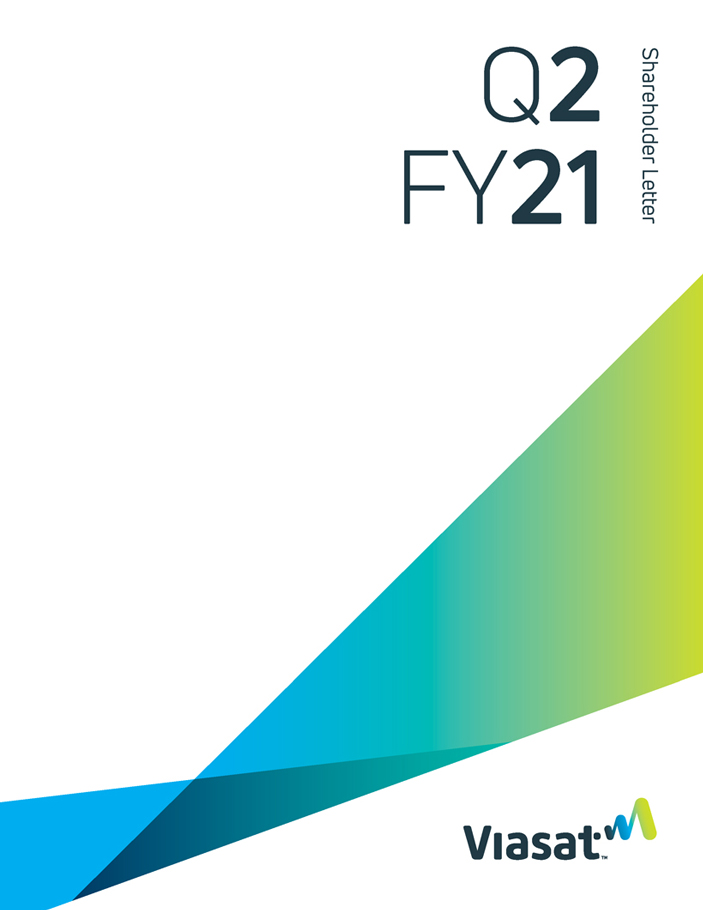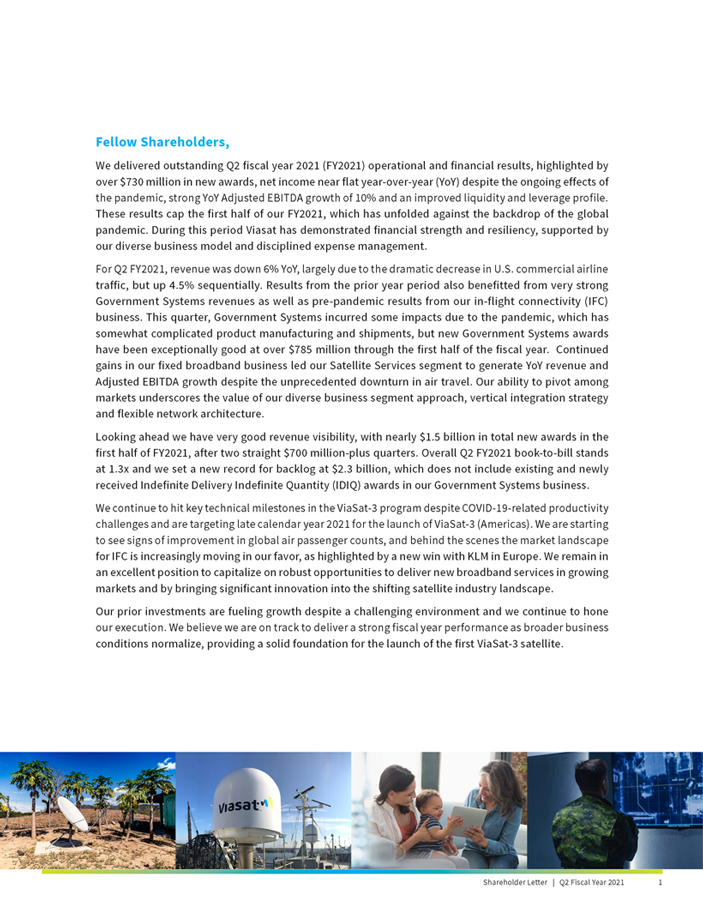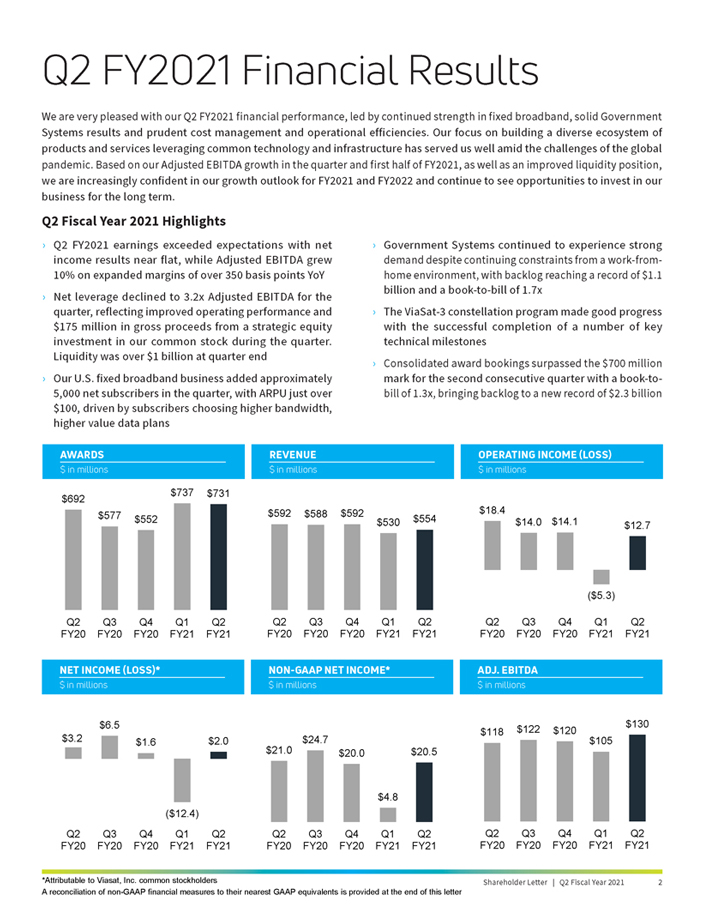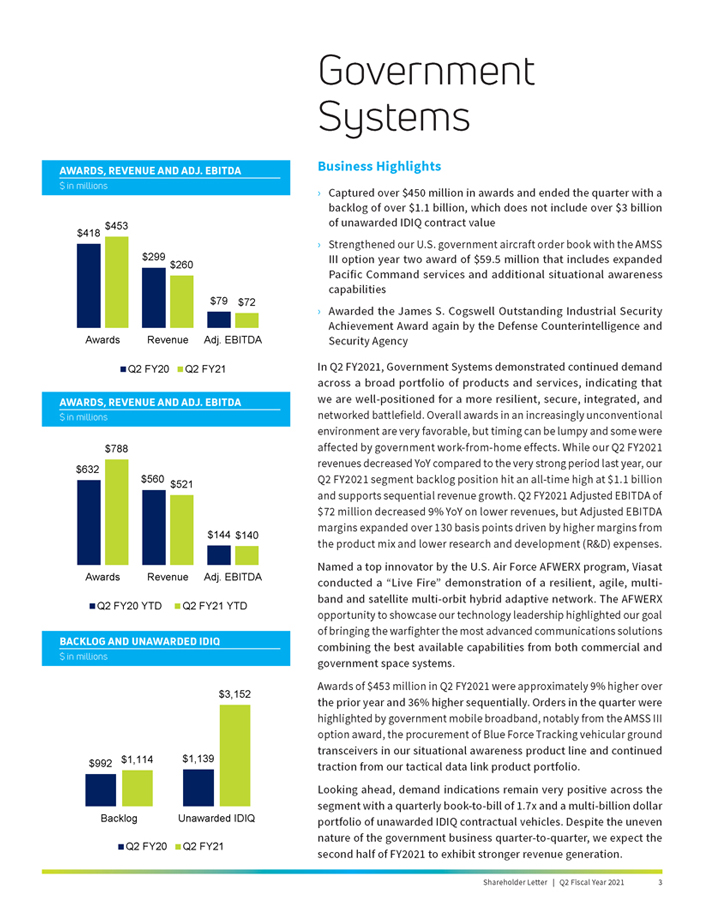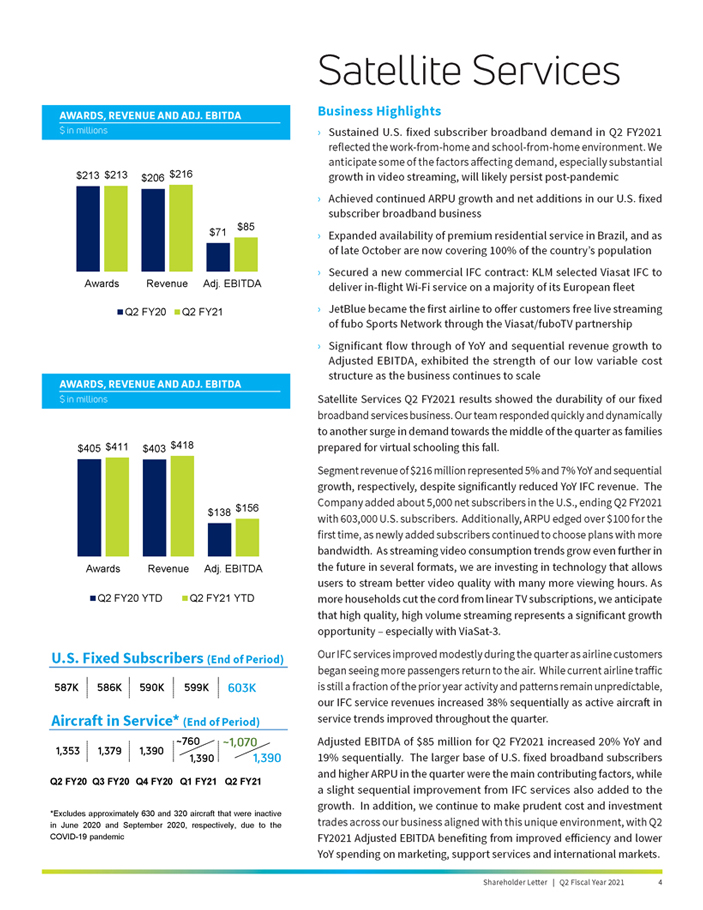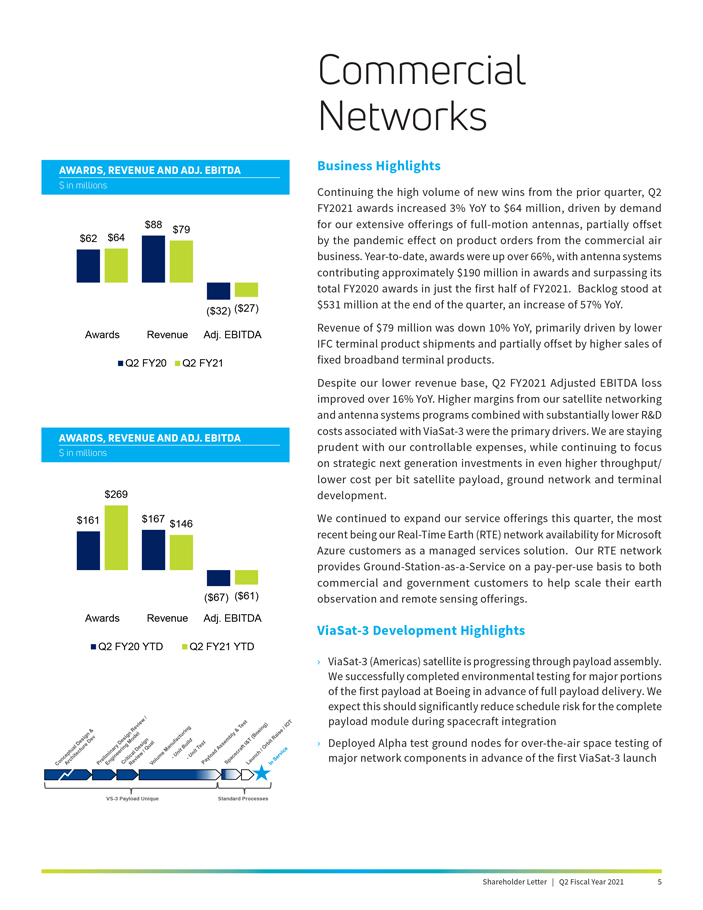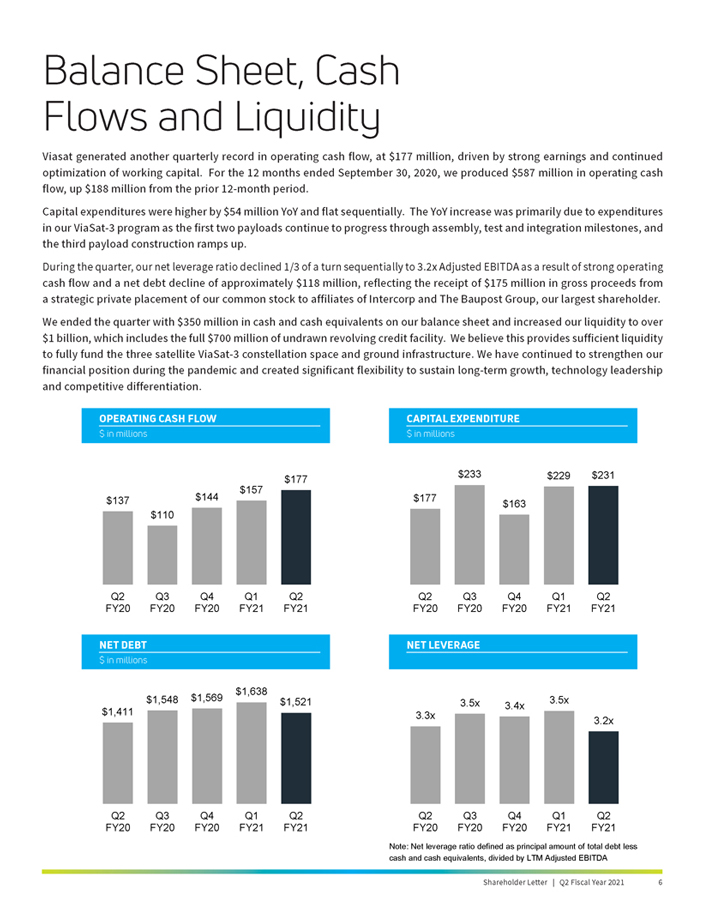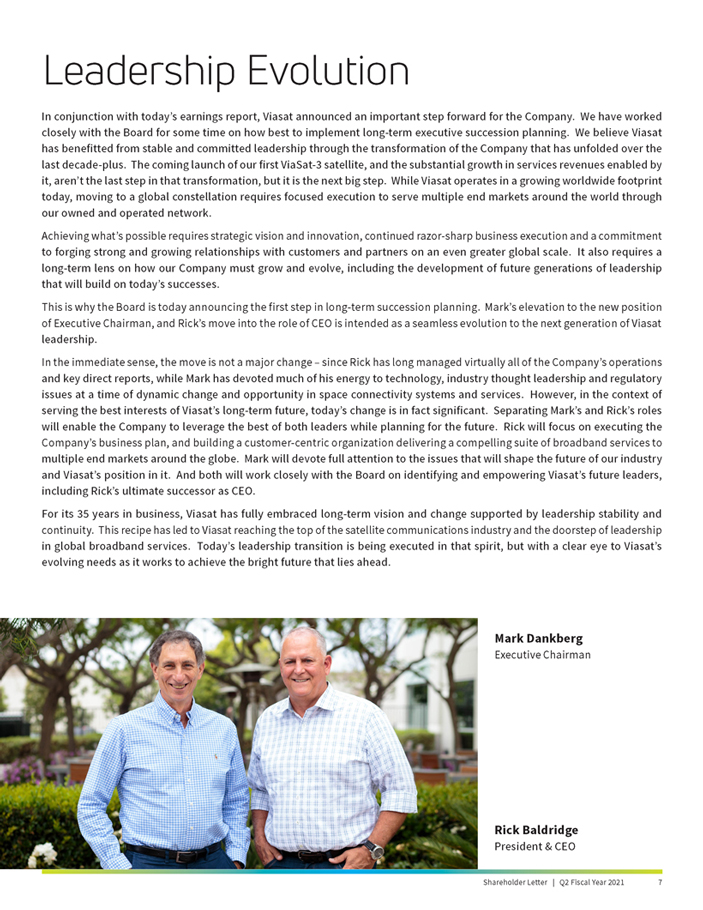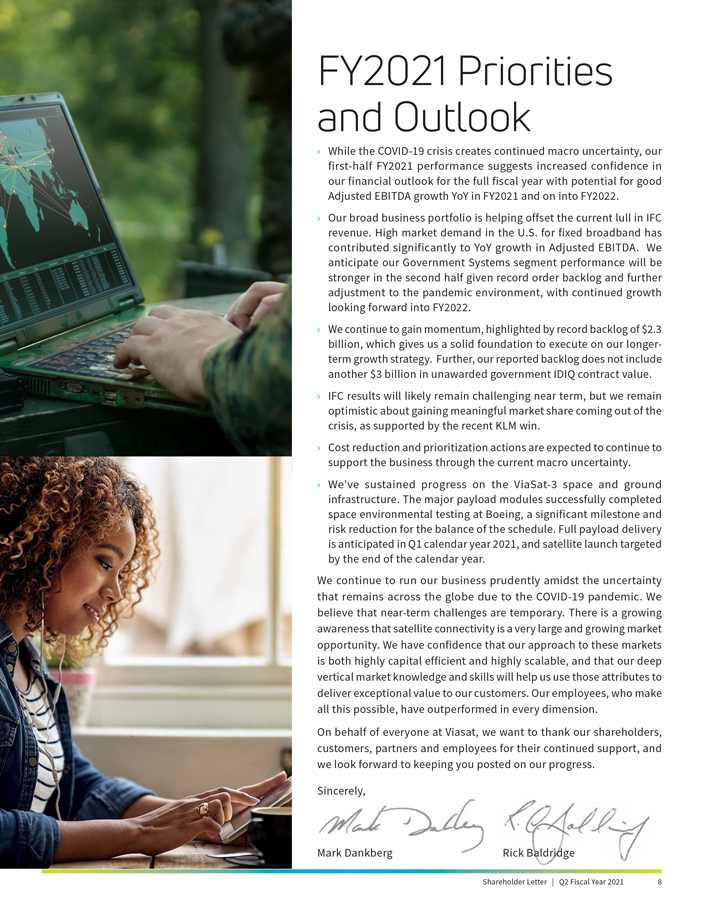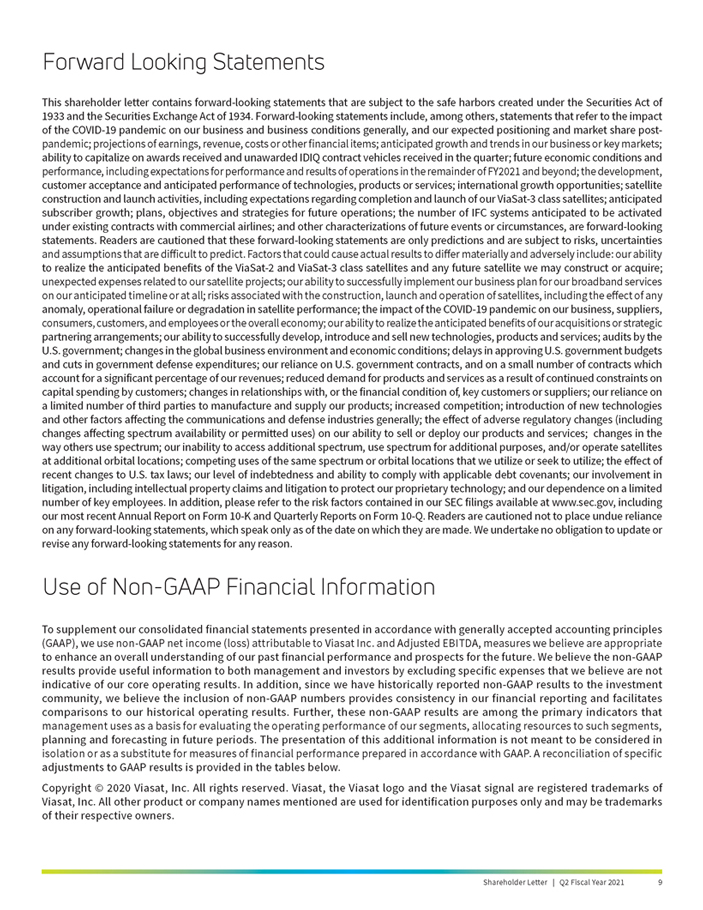
Forward Looking Statements This shareholder letter contains forward-looking statements that are subject to the safe harbors created under the Securities Act of 1933 and the Securities Exchange Act of 1934. Forward-looking statements include, among others, statements that refer to the impact of the COVID-19 pandemic on our business and business conditions generally, and our expected positioning and market share post-pandemic; projections of earnings, revenue, costs or other financial items; anticipated growth and trends in our business or key markets; ability to capitalize on awards received and unawarded IDIQ contract vehicles received in the quarter; future economic conditions and performance, including expectations for performance and results of operations in the remainder of FY2021 and beyond; the development, customer acceptance and anticipated performance of technologies, products or services; international growth opportunities; satellite construction and launch activities, including expectations regarding completion and launch of our ViaSat-3 class satellites; anticipated subscriber growth; plans, objectives and strategies for future operations; the number of IFC systems anticipated to be activated under existing contracts with commercial airlines; and other characterizations of future events or circumstances, are forward-looking statements. Readers are cautioned that these forward-looking statements are only predictions and are subject to risks, uncertainties and assumptions that are difficult to predict. Factors that could cause actual results to differ materially and adversely include: our ability to realize the anticipated benefits of the ViaSat-2 and ViaSat-3 class satellites and any future satellite we may construct or acquire; unexpected expenses related to our satellite projects; our ability to successfully implement our business plan for our broadband services on our anticipated timeline or at all; risks associated with the construction, launch and operation of satellites, including the effect of any anomaly, operational failure or degradation in satellite performance; the impact of the COVID-19 pandemic on our business, suppliers, consumers, customers, and employees or the overall economy; our ability to realize the anticipated benefits of our acquisitions or strategic partnering arrangements; our ability to successfully develop, introduce and sell new technologies, products and services; audits by the U.S. government; changes in the global business environment and economic conditions; delays in approving U.S. government budgets and cuts in government defense expenditures; our reliance on U.S. government contracts, and on a small number of contracts which account for a significant percentage of our revenues; reduced demand for products and services as a result of continued constraints on capital spending by customers; changes in relationships with, or the financial condition of, key customers or suppliers; our reliance on a limited number of third parties to manufacture and supply our products; increased competition; introduction of new technologies and other factors affecting the communications and defense industries generally; the effect of adverse regulatory changes (including changes affecting spectrum availability or permitted uses) on our ability to sell or deploy our products and services; changes in the way others use spectrum; our inability to access additional spectrum, use spectrum for additional purposes, and/or operate satellites at additional orbital locations; competing uses of the same spectrum or orbital locations that we utilize or seek to utilize; the effect of recent changes to U.S. tax laws; our level of indebtedness and ability to comply with applicable debt covenants; our involvement in litigation, including intellectual property claims and litigation to protect our proprietary technology; and our dependence on a limited number of key employees. In addition, please refer to the risk factors contained in our SEC filings available at www.sec.gov, including our most recent Annual Report on Form 10-K and Quarterly Reports on Form 10-Q. Readers are cautioned not to place undue reliance on any forward-looking statements, which speak only as of the date on which they are made. We undertake no obligation to update or revise any forward-looking statements for any reason. Use of Non-GAAP Financial Information To supplement our consolidated financial statements presented in accordance with generally accepted accounting principles (GAAP), we use non-GAAP net income (loss) attributable to Viasat Inc. and Adjusted EBITDA, measures we believe are appropriate to enhance an overall understanding of our past financial performance and prospects for the future. We believe the non-GAAP results provide useful information to both management and investors by excluding specific expenses that we believe are not indicative of our core operating results. In addition, since we have historically reported non-GAAP results to the investment community, we believe the inclusion of non-GAAP numbers provides consistency in our financial reporting and facilitates comparisons to our historical operating results. Further, these non-GAAP results are among the primary indicators that management uses as a basis for evaluating the operating performance of our segments, allocating resources to such segments, planning and forecasting in future periods. The presentation of this additional information is not meant to be considered in isolation or as a substitute for measures of financial performance prepared in accordance with GAAP. A reconciliation of specific adjustments to GAAP results is provided in the tables below. Copyright © 2020 Viasat, Inc. All rights reserved. Viasat, the Viasat logo and the Viasat signal are registered trademarks of Viasat, Inc. All other product or company names mentioned are used for identification purposes only and may be trademarks of their respective owners. Shareholder Letter | Q2 Fiscal Year 20219
